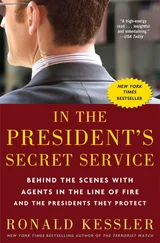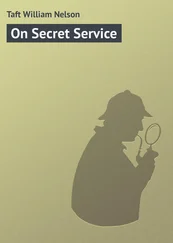William Fitzpatrick - Secret Service Under Pitt
Здесь есть возможность читать онлайн «William Fitzpatrick - Secret Service Under Pitt» — ознакомительный отрывок электронной книги совершенно бесплатно, а после прочтения отрывка купить полную версию. В некоторых случаях можно слушать аудио, скачать через торрент в формате fb2 и присутствует краткое содержание. Жанр: foreign_antique, foreign_prose, на английском языке. Описание произведения, (предисловие) а так же отзывы посетителей доступны на портале библиотеки ЛибКат.
- Название:Secret Service Under Pitt
- Автор:
- Жанр:
- Год:неизвестен
- ISBN:нет данных
- Рейтинг книги:5 / 5. Голосов: 1
-
Избранное:Добавить в избранное
- Отзывы:
-
Ваша оценка:
- 100
- 1
- 2
- 3
- 4
- 5
Secret Service Under Pitt: краткое содержание, описание и аннотация
Предлагаем к чтению аннотацию, описание, краткое содержание или предисловие (зависит от того, что написал сам автор книги «Secret Service Under Pitt»). Если вы не нашли необходимую информацию о книге — напишите в комментариях, мы постараемся отыскать её.
Secret Service Under Pitt — читать онлайн ознакомительный отрывок
Ниже представлен текст книги, разбитый по страницам. Система сохранения места последней прочитанной страницы, позволяет с удобством читать онлайн бесплатно книгу «Secret Service Under Pitt», без необходимости каждый раз заново искать на чём Вы остановились. Поставьте закладку, и сможете в любой момент перейти на страницу, на которой закончили чтение.
Интервал:
Закладка:
CHAPTER IV
THE BETRAYER'S INTERVIEW WITH TALLEYRAND
The letters of secret information in the well-known 'Castlereagh Correspondence' being mostly without date are inserted regardless of chronological sequence, and are often, from dearth of explanation, wholly unintelligible. One of these secret reports follows a letter of Portland's 65 65 See Castlereagh Papers , i. 251. See also chapter vii. of the present volume.
– to be found later on – regarding the intercepted memorial which Dr. McNevin had addressed to the French Government. The particular references to Lord Downshire, to Hamburg, to Fitzgerald, and to the North of Ireland, of which Turner was a native – not to speak of his 'tone of injured innocence,' 'the dread of those from whom I come as to the ascendency of the Papists' – all point to him as the writer.
His tone as usual is hostile to Lewins, a Roman Catholic envoy of great honesty, whose reputation he is ever seeking to injure; and the intrigue, it may be added, very nearly succeeded in getting Lewins superseded. Mr. Froude, it will be remembered, when describing his unmasked informer writes:
Lady Edward Fitzgerald had sent him on to Paris with a letter to her brother-in-law, General Valence. By Valence he had been introduced to Hoche and De la Croix. He had seen Talleyrand and had talked at length with him on the condition of Ireland.
It was in February, 1798, that Mr. Froude's spy reappeared in London. 66 66 Froude, iii. 301.
He had interviews at the Home Office, where he received some instructions, which are not stated. Camden urged Portland to beg of him to give evidence publicly, and to offer reward to any amount. But all to no effect. At last it was decided, as the next best thing to do, 'that he should open a correspondence with the principal conspirators, by which means you may be apprised of their intentions.' This is exactly what he is now found doing. On April 17 he goes to Paris, no doubt sent by the Home Office, to ascertain what arrangement had been made by O'Coigly and O'Connor as regards the long-sought French expedition to Ireland.
De la Croix will be chiefly remembered as the Minister for Foreign Affairs with whom Tone had to do. But he had been personally offensive to Lord Malmesbury, the English Minister, and M. Talleyrand was appointed to succeed La Croix on July 15, 1797. 67 67 See M. de Talleyrand , par M. de Villemarest, ch. viii.; Hist. du Directoire , par M. de Barante, liv. iv.
The following letter is to be found in the 'Castlereagh Papers' (i. 231-6), and derives additional importance from its close connection with Talleyrand: —
April 17th [1798], arrived in Paris.
On the 19th waited on the Minister for Foreign Affairs; it being Décadi, he was gone to the country. Left my name, and called next day, at eleven; instantly admitted; talked over the purport of my visit, which I had brought in writing, as follows: —
'Citizen Minister, – Since I had the honor of seeing you in September last, I understand attempts have been made to injure my character here by some persons equally despicable as malicious (I mean Lewines and his associates), from whom, though United Irishmen, I pride myself in differing, both in sentiment and conduct; nor should I condescend to answer their infamous charges. 68 68 Of infidelity to the rebel cause.
'I, however, take great pleasure in acquainting you with what I have been about, viz., trying to bring over to the side of the United Irish what is called the Independent Interest, alias the Country Gentlemen, all of whom have commands either in the Yeomanry or Militia , 69 69 Mr. Froude, speaking of 'the second arrest of two of the leading committees of Belfast,' says (iii. 237) that 'Lake seized papers which revealed the correspondence with France, the extent of the revolutionary armament, and the measures taken for the seduction of the army and militia. The papers were sent to Dublin and were laid before a secret committee.' See also correspondence in re McNevin's Memorial, ch. vii. infra .
and to whom the safety of the interior will be entrusted, whilst the regular troops march against the enemy. These gentlemen have always been much against the Government, but feared, in a revolution, the loss of their property, especially such as held their estates by grants of Oliver Cromwell. For some time past a union has been formed among this body for the purpose of forcing England into whatever measures they choose as soon as an invasion takes place; all of my most particular friends are of this association, and they have infused into the minds of the rest the idea that English faith is not to be relied on. In consequence, they are all now completely up to the formation of a Republic and a separation from Britain, provided the French Directory will give, under their seal, the terms and conditions Ireland has a right to expect and demands. I took upon me to say France never meant to treat Ireland has a conquered country; that, certainly, they would expect a contribution towards defraying the great expense incurred in supporting the cause of liberty; but what the sum would be, I could not take upon me to mention. They insist upon having that specified, and any other conditions for this purpose.
'Citizen Minister, I now apply to you; to none other have I hinted my business, and the most profound secrecy will be requisite in order to completely deceive the English Government. I shall mention to you the channel of correspondence, &c., with the ciphers I'll make use of, if it is requisite to write, but which I sha'n't do without your permission, and giving you the letter to enclose to Hamburg. 70 70 The spy sought to deceive the French Government in this report. The Cromwellian Settlers never thought of joining the United Irishmen. One of Turner's objects seems to have been to get a written undertaking from Talleyrand that the estates of these Settlers should be left intact, and money sent to promote an alleged treasonable conspiracy of Cromwellian Settlers against England, but which, in point of fact, did not exist. The Ulster Presbyterians were, no doubt, rebels; but these men were the descendants, not of the Cromwellian adventurers, but of King James's Planters.
Thus far the letter of Turner to Talleyrand – for Turner it assuredly is. It does not follow that the Minister believed all he was told. The quondam Bishop of Autun could read a soul. He was a diplomat, however, and showed to his visitor that cautious courtesy which he had learned when a bishop. He who said that speech is given to conceal thoughts, 71 71 This phrase is assigned to Talleyrand by Harel in the Nain Jaune ; but the thought had been previously expressed by another bishop, i. e. Jeremy Taylor.
was not the man to be at once swayed by words. The despatch now before us had been addressed to the Home Office, and must be one of the papers Mr. Froude thought destroyed. The copy of his letter to Talleyrand having been submitted to Portland, the spy thus resumes: —
The Minister then said it was a matter extremely interesting, that other things were on the tapis at present, but desired I would call again on the second uneven day from that, and he'd 72 72 The contractions 'he'd' and 'sha'n't' are entirely consistent with Turner's 'you'll' in the letter to Downshire, transcribed by me from the Pelham MSS. See p. 50 , infra ; also Turner's acknowledged letter to Cooke, p. 97 .
enter into particulars. I did so, and gave him the following letter. He said he had laid my first before the Directory; that their opinions coincided with his, but that they could not give anything under their hands or seal, nor he either; that I had perfectly expressed their intentions. I told him this was perfectly satisfactory to me, but I feared it would not be so to them. 'Surely,' says he, 'they have a confidence in you, and you shall have it from the Directory, if you choose.' I said I hoped that would be sufficiently satisfactory to my friends, and begged to know when I could see him again – the 1st of the next decade, as they were still very busy on other matters.
Интервал:
Закладка:
Похожие книги на «Secret Service Under Pitt»
Представляем Вашему вниманию похожие книги на «Secret Service Under Pitt» списком для выбора. Мы отобрали схожую по названию и смыслу литературу в надежде предоставить читателям больше вариантов отыскать новые, интересные, ещё непрочитанные произведения.
Обсуждение, отзывы о книге «Secret Service Under Pitt» и просто собственные мнения читателей. Оставьте ваши комментарии, напишите, что Вы думаете о произведении, его смысле или главных героях. Укажите что конкретно понравилось, а что нет, и почему Вы так считаете.












